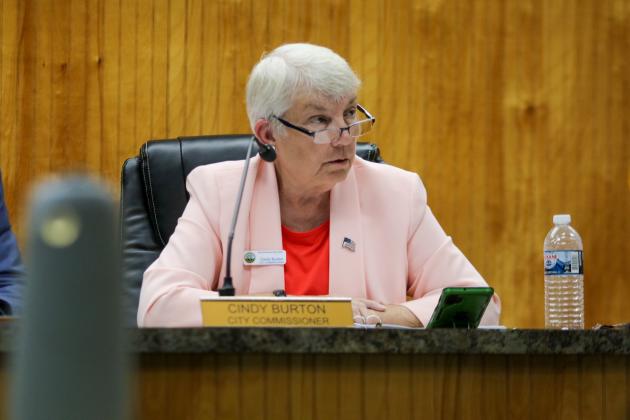Crescent City Commissioner Cynthia Burton will remain in office despite election results that may have bumped her from the seat, after a Fifth District Court of Appeal opinion issued Monday.
In a reversal of a trial court’s ruling earlier this year, the appeals court found the recall petition submitted by recall Chairman Craig Oates to be “legally insufficient.”
In short, the higher court invalidated the results of a May 30 recall election as well as the earlier legal opinion. The higher court found that Burton did not commit "malfeasance" in attending a publicly noticed meeting and that the recall committee did not follow state statute in its efforts to oust the commissioner.
"The dispositive question Is whether, under (Florida State Statute) section 286.011(1), this January 14, 2021, meeting was 'open to the public.' If so, then Burton, by definition, did not commit an act of 'malfeasance' by her attendance," wrote Chief Judge Brian Lambert in the order, which sends the case back down to Putnam County Circuit Court.
Lambert cited the Fifth DCA's own precedent in Herrin v. Deltona, where the appeals court addressed the phrase "open to the public."
"We concluded that the term reasonably meant that city commissioner meetings must be properly noticed and made reasonably accessible to the public," Lambert wrote. "What Oates is essentially asking here is that we interpret section 286.011(1)'s language to mean that a meeting is 'open to the public' only if the public can attend in person, despite the language 'in person' being conspicuously absent from the statute. We respectfully decline to do so."
Lambert also addressed the question of whether the recall committee's submission of the recall petitions to the elections office, rather than City Clerk Karen Hayes, was acceptable. Lambert stated that it was not.
"Had the Legislature… intended the County Supervisor of Elections to act as the 'equivalent' of the clerk of the municipality during a recall election, it could have easily, clearly done so. It didn't," Lambert wrote.
Attempts to recall several city commissioners who attended the 2021 meeting from office, with the exception of Commissioner Lisa Devitto, have been ongoing. Oates and members of the recall committee, going by the name of Recall Crescent City Florida, allege that commissioners violated the state's Government in the Sunshine Law when they met virtually due to the COVID-19 pandemic.
The recall group tried to argue that the meeting was not open to the public. However, as the Fifth District stated Monday, the city gave proper notice that the meeting would be held in a virtual environment and gave residents proper instructions on how to access the meeting.
An earlier effort based on this argument failed when the group aimed to recall former city commissioner Judy West.
Following the released opinion Monday, Burton said it was a good day for her and that her patience paid off.
“It really hits all the nails on the head,” she said about the opinion.
On May 30, an election was held in Crescent City, where people voted if they wanted to recall or keep Burton in office. While just 30% of the registered voters turned out for the election, 180 voted to recall Burton and 126 voted to keep her in office.
But the Fifth District’s opinion invalidates those votes.
The case was weighed by three appeals court judges: Lambert, Judge Scott Makar and Judge Jordan Pratt. All three judges provided concurring opinions.
In a concurring opinion, Makar agreed with Lambert and emphasized the state's recall systems serve a limited and important purpose: to empower the people to "pull the plug on elected public officials who engage in bribery, corruption, and other forms of bad behavior before the completion of their terms."
Makar said the system requires a delicate balance of the people's sovereign power over officials and the guardrails necessary to ensure recalls are not misused.
“A downside to recall systems is that they potentially short-circuit the regular election process,” Makar wrote. “They can create a poisonous atmosphere of charges, counter-charges, and vitriol that damage the democratic system itself and reduce rather than increase the potential for effective local governance. Plus, off-cycle recall elections tend to have lower turnouts, potentially skewing the outcomes.”
He said Crescent City has been “beset with political acrimony” in recent years because of the recent recall attempts.
Not everyone agreed with the appeals court ruling.
Attorney Marc Randazza, the lead legal counsel for Oates, said the recall committee intends to pursue a further review from the Florida Supreme Court.
“I’m confused about why somebody spends tens of thousands of dollars to remain entrenched in a $600 a month position when the voters resoundingly told her that she isn’t wanted,” Randazza said in an emailed statement. “Is it that the power is that delicious to her, or is there more to it?"

